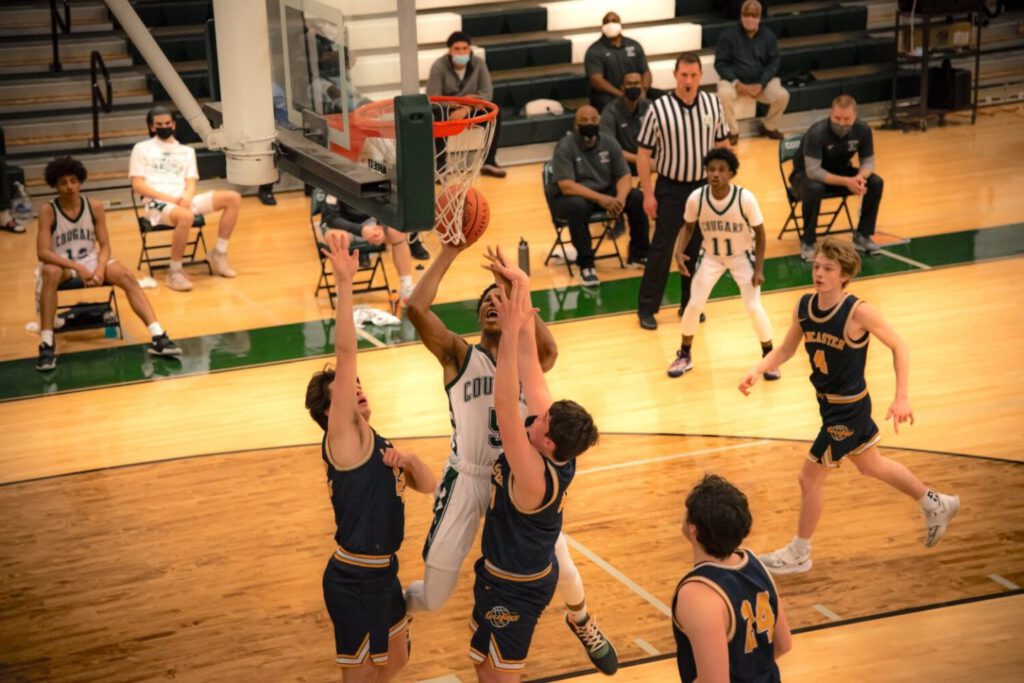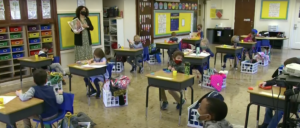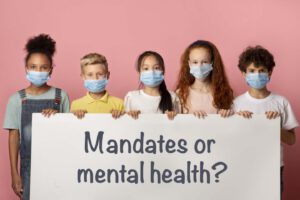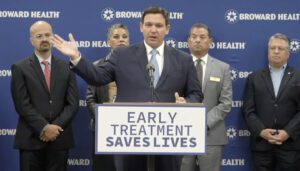Vaccine mandates for student athletics and other extracurriculars increasing nationwide as some schools also go remote
As Covid cases increase nationwide, some schools have implemented vaccine mandates for students involved in extracurricular activities, including athletics. Critics worry that the mandates will have…

As Covid cases increase nationwide, some schools have implemented vaccine mandates for students involved in extracurricular activities, including athletics. Critics worry that the mandates will have detrimental effects on student development and health and are not worth the cost since teens are at low risk for severe illness from the virus.
In Cambridge, Mass., student athletes have been under a vaccine mandate since November. As of this week, the mandate now includes clubs, visual and performing arts programs, and school-sponsored social events. The mandate applies to students who are 12 and older, requiring them to be fully vaccinated unless granted an exemption.
Chicago, New York City, Philadelphia, Los Angeles, Baltimore, Fairfax, and Washington, D.C. also have mandates in place. Some school districts have had mandates for months, including New York City, which announced a vaccine requirement for ‘high-risk sports’ in August.
Philadelphia abruptly tightened its vaccination policy in December, effectively pulling the rug out from underneath hundreds of student athletes who wanted to compete. In October, the Philadelphia School District announced that athletes who were not vaccinated and sought an exemption could participate in winter sports, provided they test weekly. In December, the district changed course, saying unvaccinated students would be excluded from activities.
This sudden shift left many athletic departments scrambling. One athletic director, who desired to remain anonymous for fear of backlash, told the Philadelphia Enquirer that “(the policy change will) decimate teams, and some teams won’t have enough players to field a team…It just seems like our students always get the shaft, with poor facilities, and now some of them can’t play.” He went on to say that likely half of their students would be excluded under the change in policy. Shortly after the inquirer questioned the district, the policy was adjusted to include a “grace period” for students to get fully vaccinated by January 21st or be excluded from competition.
In addition to vaccine mandates, conflict among leaders is growing about whether or not to keep schools open. In many states, including Massuchusets and Illinois, teachers unions and government leaders are disagreeing over the issue of remote learning. In Massachusetts, the teachers union is calling for multiple days of remote learning after testing on Monday. In response, a spokesperson from the Executive Office of Education opposed the effort: “The commissioner is not going to close schools Monday…it is disappointing that once again the MTA is trying to find a way to close schools, which we know is to the extreme detriment of our children.”
Mass. Governor Charlie Baker expressed the same sentiment, stressing that keeping kids in school is of utmost importance. “There are a lot of tools and capabilities available to keep kids and adults safe in school, and we should do everything in our power to make sure that kids stay in school,” Baker said last week.
Similarly, this week in Chicago, classes were canceled at the last minute after the Chicago Teachers Union voted to take action if Chicago Public Schools did not move to remote learning. CPS CEO Pedro Martinez and Chicago Mayer Lori Lightfoot have both recently spoken against closing schools.
Critics continue to question the harmful effects these mandates are having on youth, especially related to mental health and academic development. Whether teachers unions will listen remains to be seen.



